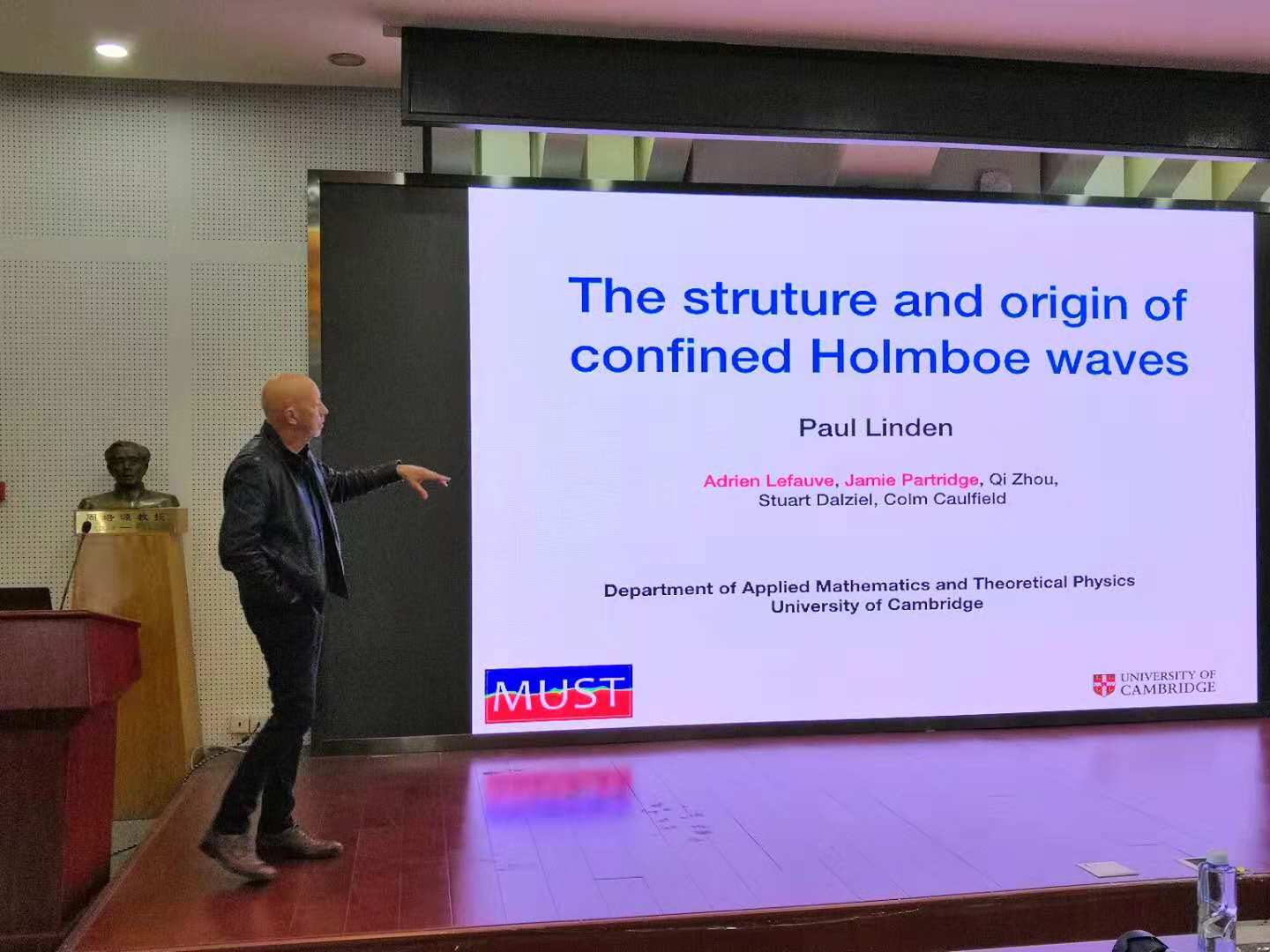Latest News
-
[2018-11-01]
Prof. Paul Linden of University of Cambridge visited LTCS
Recently, Prof. Paul Linden of University of Cambridge visited State Key Laboratory for Turbulence and Complex Systems of Peking University.
Prof. Linden is the Director of Research and the GI Taylor Professor Emeritus of Fluid Mechanics in the Department of Applied Mathematics and Theoretical Physics, and Professorial Fellow Emeritus of Downing College, University of Cambridge. He is also the Blasker Distinguished Professor Emeritus of Environmental Science and Engineering in the Department of Mechanical and Aerospace Engineering at UC San Diego. While at UC San Diego he was the Chair of the MAE department (2004-2009), the Director of the Environment and Sustainability Initiative (2007-2009) and the founding Director of the Sustainability Solutions Institute (2009-2010). Prof. Linden is the Deputy Editor of the Journal of Fluid Mechanics and the Editor of JFM Perspectives. He is the Fellow of the American Physical Society, the Royal Meteorological Society, Academia Europaea, and the Royal Society. His research is concerned with fluid flow in the environment and in industry.
On October 26th, Prof. Linden gave a seminar at the LTCS, titled “The structure and origin of combined Holmboe waves”. In this talk, Prof. Linden introduced the origin of an unreported long-lived coherent structure in a laboratory stratified shear flow generated by exchange flow through an inclined square duct connecting two reservoirs filled with fluids at different densities. Through experiments, measurements and analysis, they finally come to a conclusion that the lateral confinement is an important ingredient of the confined Holmboe instability, with implications for many inherently confined geophysical flows such as in valleys, estuaries, straits or deep ocean trenches.

Prof. Paul Linden delivering the lecture
After the seminar, LTCS faculty and students had stimulating discussions with Prof. Linden. Additionally, Prof. Linden discussed scientific problems and future collaboration with LTCS during his one-week visit.
